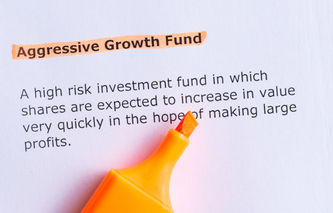Definition
The term hedge fund refers to an investment and business structure that pools capital from individuals and invests in a variety of securities. The objective of a hedge fund is to provide investors with above average returns by assuming above average risk.
Explanation
While a hedge fund can resemble a mutual fund, there are several differences. For example, a hedge fund manager is compensated in two ways: a fixed component which is a percentage of the assets, and a variable component which is based on the performance of the fund. The minimum required investments for hedge funds can also be relatively high, thereby limiting investor participation to high net worth individuals (net assets in excess of $1 million). Most funds also discourage turnover by specifying a lock-up period, which prohibits investors from removing money from the fund.
As is the case with mutual funds, hedge funds will have an assortment of investment strategies. While the term "hedge" originally referred to the fund manager's attempt to reduce risk, most funds today focus on maximizing their investors' return. Strategies employed by hedge funds include convertible arbitrage, distressed securities, emerging markets, equity markets, equity long, equity short, fixed income arbitrage, fund of funds, global markets, option arbitrage, merger arbitrage, and statistical arbitrage.



